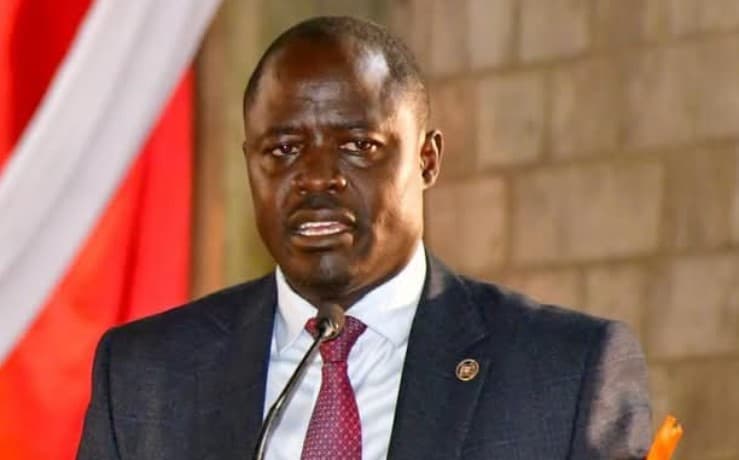We're loading the full news article for you. This includes the article content, images, author information, and related articles.
Homa Bay, Kenya – Homa Bay Town MP Peter Kaluma has announced that the Broad-Based Government (BBG) will deploy all its political resources to ensure victory for Boyd Were in the Kasipul parliamentary by-election.

Homa Bay, Kenya — September 25, 2025
Homa Bay Town MP Peter Kaluma has pledged that the Broad-Based Government (BBG) will marshal its political machinery to back Boyd Were in the upcoming Kasipul parliamentary by-election. The endorsement came after Were clinched the ODM party ticket.
On his official X page, Kaluma congratulated Were on his nomination, invoking the legacy of his late father. > “Congratulations, Boyd Were, on your nomination as the ODM party candidate for MP for Kasipul Constituency! Your late father is very proud of you and the family he left behind.”
Were secured 18,210 votes in the ODM primaries, decisively outperforming his main rival, Newton Ogada, who polled 3,037 votes.
His victory reinforces the influence of Governor Gladys Wanga, who backed his candidacy publicly even during his father’s funeral.
The ODM primaries, however, were marred by isolated incidents of violence, including stone‐throwing, tyre deflations, and vandalism of a candidate’s hospital property.
Kasipul Constituency is in Homa Bay County. The seat fell vacant following the death of MP Charles Ong’ondo Were in April 2025.
The by-election is viewed as a test of strength for BBG and ODM in Nyanza, particularly in constituencies previously considered opposition strongholds.
Kaluma’s public backing signals that the BBG is intent on consolidating its control across regions with symbolic and strategic importance.
Kaluma’s move shows that national politics and party machinery remain deeply intertwined; endorsement from sitting MPs can translate into mobilisation capacity on the ground.
Such alignment may also raise questions about fairness in campaign resource allocation, media access, and the neutrality of public institutions.
The endorsement will put pressure on rival parties (independents, opposition factions, or those unhappy with ODM primaries) to consolidate or risk splitting votes.
Rival factions may claim the primaries were manipulated or biased, leading to internal splits or legal petitions.
The incidents of violence in the primaries could spark disputes and legal challenges that may hinder campaign momentum.
Overreliance on party machinery could alienate grassroots voters who feel their voices were sidelined in nomination processes.
The scale and form of BBG resource deployment: whether it will be financial, logistical, or security support.
Whether all ODM aspirants and voters will seamlessly rally behind Were or if divisions will persist.
What counter-strategies rival parties or independent candidates will adopt.
Whether any legal challenges to the primaries’ conduct will emerge before the by-election.
Statements or responses from Newton Ogada and other defeated ODM aspirants.
BBG’s visible campaign support: rallies, endorsements, financial backing.
Any court petitions challenging the validity of the ODM nomination.
Voter turnout and performance in subsequent campaigns or polling as a gauge of BBG/ODM influence.
Keep the conversation in one place—threads here stay linked to the story and in the forums.
Sign in to start a discussion
Start a conversation about this story and keep it linked here.
Other hot threads
E-sports and Gaming Community in Kenya
Active 9 months ago
The Role of Technology in Modern Agriculture (AgriTech)
Active 9 months ago
Popular Recreational Activities Across Counties
Active 9 months ago
Investing in Youth Sports Development Programs
Active 9 months ago
Key figures and persons of interest featured in this article